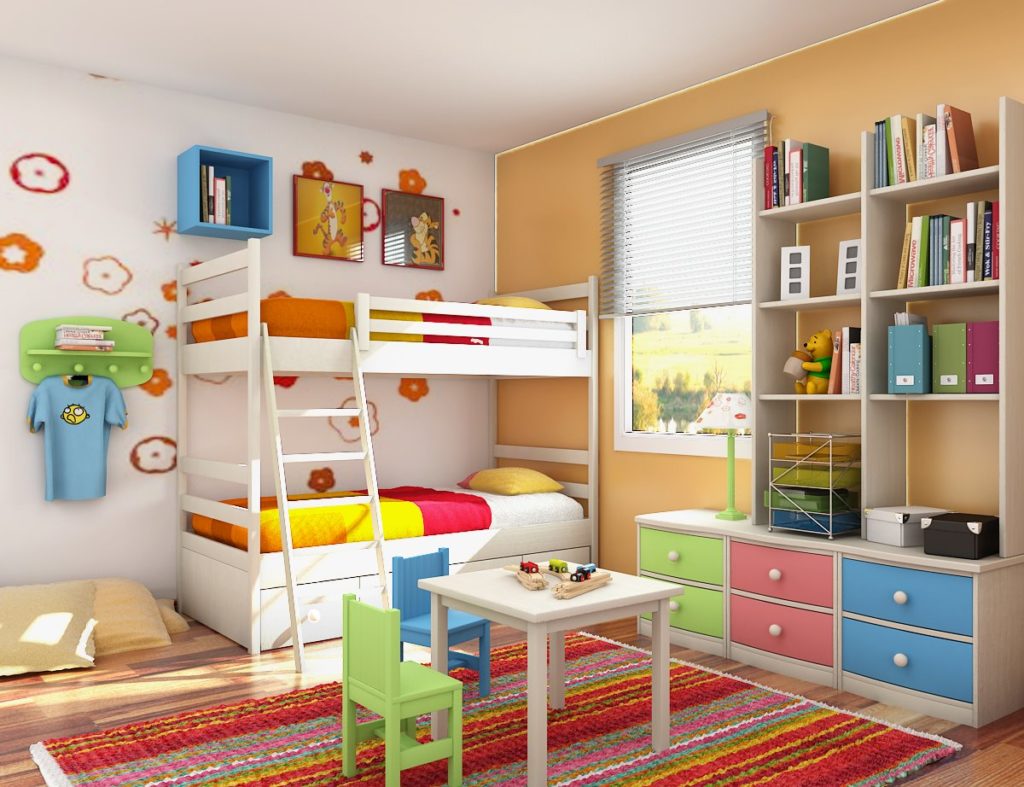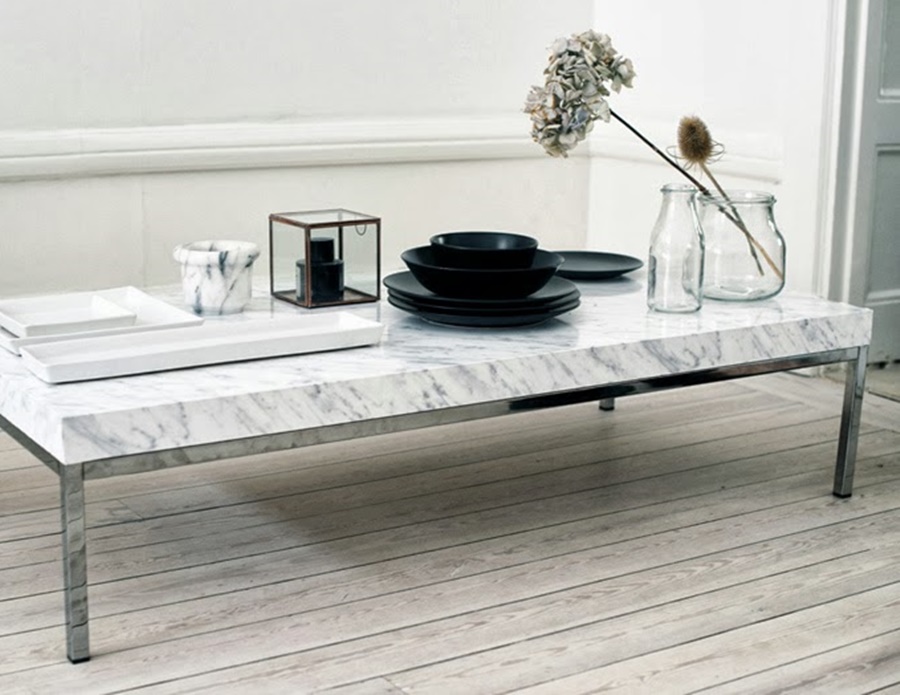Designing Your Child’s Room
Your child’s room can be one of the most challenging rooms in the house to decorate. As a parent, you want to ensure that your child will be comfortable and happy in their own bedroom. You also want to make sure your child can play and have fun in their bedroom too. So, they will need space to play on the floor and kick up their heels while being safe at the same time.
As they get older, they also might do their homework and study in their room. When it comes to decorating the space, allow your child to have significant input. The more your child is involved in helping plan the room’s decor, the more likely it is he or she will take pride in the space and take care of it. Try to include your child’s hobbies, interests and talents as a part of the room’s theme.
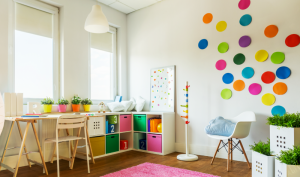
To begin decorating, start by choosing a theme or colour scheme. Pick one item or colour that will be the main focus of the room. While many choose the bed as the main point of interest, you could focus on a display shelf, painted wall mural or decorated play area. Focusing on one area will allow you to concentrate on your colour scheme and create a space that isn’t too overwhelming.
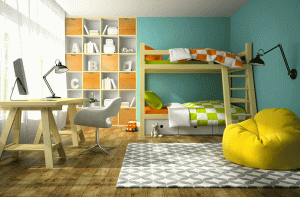
Lighting is an indispensable feature that should be incorporated into a child’s room. It is important to consider what kind of lighting will suit the room. Two or three light fixtures usually work best with one for the ceiling, a bedside lamp and a nightlight. If your child intends on using their room when studying, be sure to include substantial light sources near the desk or study spot.
Use some imagination when choosing decorative elements and consider safety when selecting these items for your child’s room. It’s a good idea to keep only a small amount of knickknacks in the room. If you include bunk beds make sure they are sturdy. Install window guards in bedrooms located on the second floor. Bolt bookcases or wall unit pieces to a wall to keep heavy pieces of furniture from falling if a child decides to climbs them. Keep electrical cords out of the way so children keep from grabbing them.
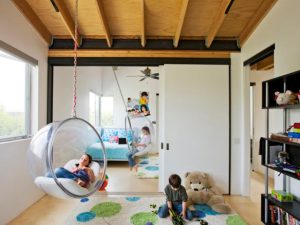
Also, a good-size desk and a comfortable chair are essential for school projects and studying. Younger children will love a table and chair at just the right height. For older kids, the best desk solution should be a sturdy, generously sized tabletop with two-drawer cabinets. A proper desk also makes it easier for kids to keep track of paperwork and reference materials. Plus, it will create great habits throughout their school years knowing they have a special study area.
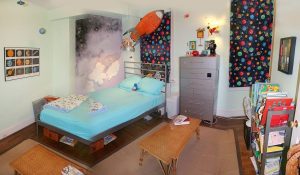
Plenty of storage space is a must in a kid’s room. Stackable plastic bins always work well and can be selected in colours to match the room’s decor. Another great addition is a toy chest that can make a fine storage option or even a bench for younger children. Ample amounts of drawer and storage space will encourage your child to remain neat and tidy. The use of tables with multiple drawers or shelves is a smart approach towards saving space and providing more storage.
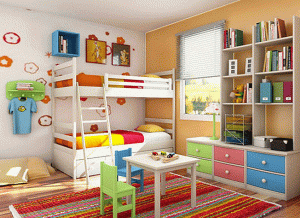
Keep your eyes open for key items that will pull a positive room concept together for your child. Adorable accessories of every kind are widely available for children’s rooms. Try to look for useful items such as clothing hooks, mirrors, pillows and other practical items to fit your theme. Colorful kid’s area rugs add lively interest and playtime patterns to kid’s bedrooms. Shelf space is perfect for displaying your child’s artwork, projects and collections.
Decorating a child’s bedroom can be overwhelming, so before you jump in learn how to select useful items that can add a spark of personality to the space while also providing great function. Be organizedand create the perfect space that allows them to play, study and most importantly be themselves. The ultimate goal is to create a room for your child to relax, play with friends and do activities such as homework while eliminating the frustrating bedroom clean-up battles. Be sure to express their personality in the design and most of all have some fun!
